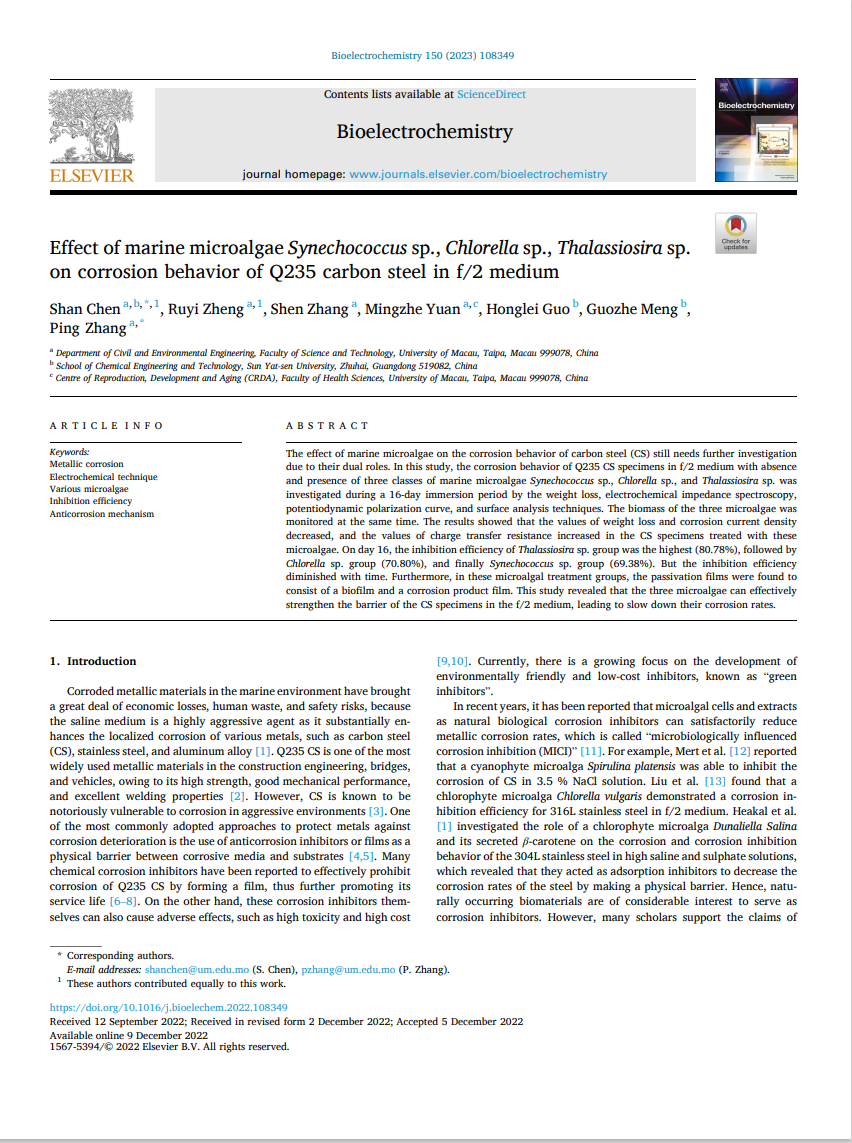The effect of marine microalgae on the corrosion behavior of carbon steel (CS) still needs further investigation due to their dual roles. In this study, the corrosion behavior of Q235 CS specimens in f/2 medium with absence and presence of three classes of marine microalgae Synechococcus sp., Chlorella sp., and Thalassiosira sp. was investigated during a 16-day immersion period by the weight loss, electrochemical impedance spectroscopy, potentiodynamic polarization curve, and surface analysis techniques. The biomass of the three microalgae was monitored at the same time. The results showed that the values of weight loss and corrosion current density decreased, and the values of charge transfer resistance increased in the CS specimens treated with these microalgae. On day 16, the inhibition efficiency of Thalassiosira sp. group was the highest (80.78%), followed by Chlorella sp. group (70.80%), and finally Synechococcus sp. group (69.38%). But the inhibition efficiency diminished with time. Furthermore, in these microalgal treatment groups, the passivation films were found to consist of a biofilm and a corrosion product film. This study revealed that the three microalgae can effectively strengthen the barrier of the CS specimens in the f/2 medium, leading to slow down their corrosion rates.
